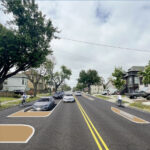On Wednesday, May 24, the Transportation Commission received an update on the Estuary Water Shuttle pilot program and endorsed streetscape changes to Park and Webster Streets.
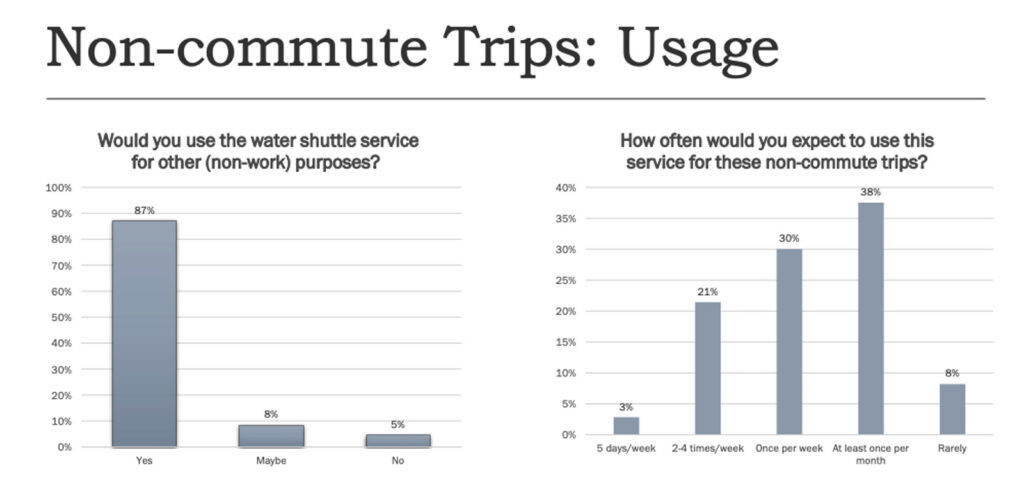
Water shuttle delayed to 2024
Senior Transportation Coordinator Rochelle Wheeler announced that a planned summertime Estuary Water Shuttle pilot between West Alameda and Jack London Square in Oakland will be canceled. According to Wheeler, a lack of clear communication between City staff, the Water Emergency Transportation Authority (WETA), and the private operator slated to run the water shuttle resulted in a failure to secure an ADA compliant vessel for the pilot.
However, Wheeler assured that a two-year pilot is still on track to begin in spring 2024. That pilot is expected to operate five days per week (weekdays and weekends) between Bohol Circle Immigrant Park in Alameda and Jack London Square in Oakland, with weekday lunchtime service to Marina Village. The service will be funded by a $1 million grant from the Alameda County Transportation Commission that was awarded to the City on May 25, with an additional $3 million coming from a partnership between the City, WETA, and local businesses and associations.
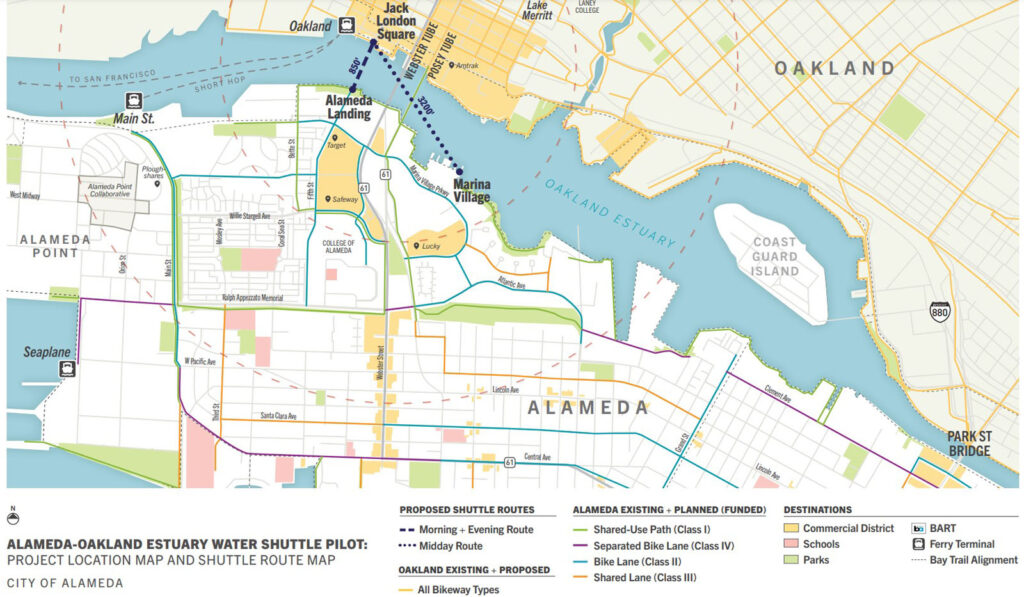
A recent City survey with 2,300 respondents found that:
- 87% would use the water shuttle for recreational purposes.
- 48% would use it for commute purposes.
- 54% would bike to the dock, while 38% would walk.
- 68% would want to bring a bike onto the boat.
The water shuttle is a key project highlighted in the City’s Active Transportation Plan and is intended to be an interim solution to facilitating Estuary crossings as planning for a new bicycle and pedestrian bridge gets underway.
Park/Webster plan would upgrade parklets, return to curbside parking
At the height of the COVID-19 pandemic, the City reduced sections of Park and Webster streets from four to two lanes as part of the Commercial Streets Program to transform roadway and sidewalk areas into spaces for parklets and outdoor dining. Several businesses have since opted out of the program, resulting in empty curbside spaces that contribute to poor parking compliance and overall confusion on both corridors.
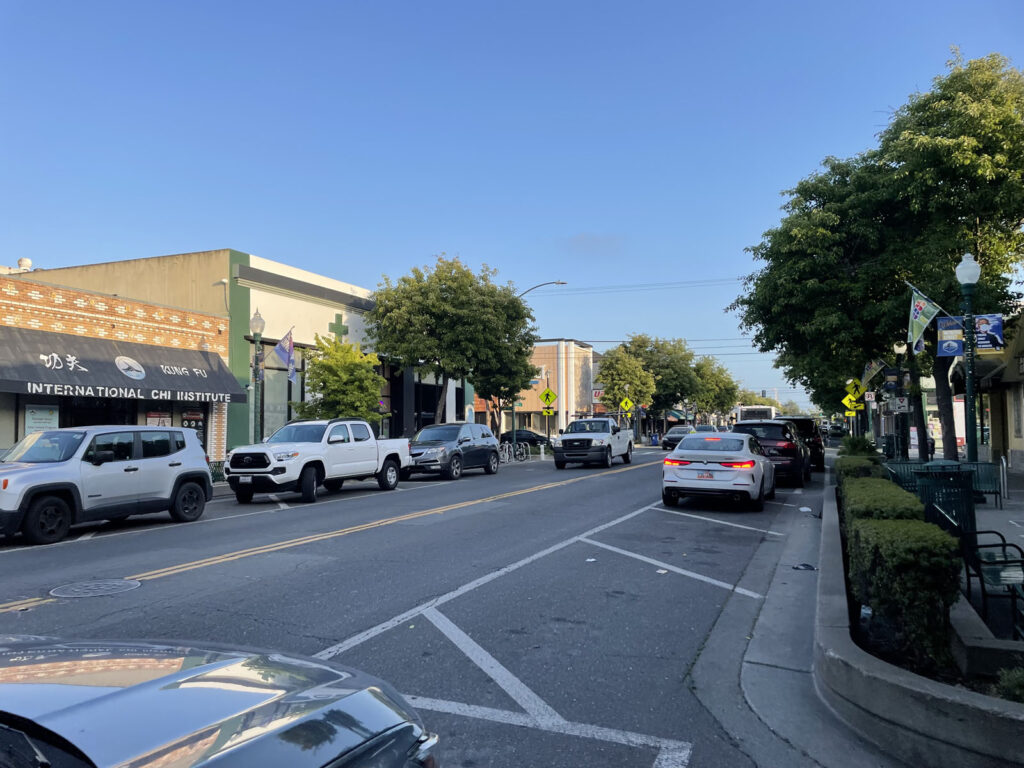
City transportation staff requested the Commission’s endorsement of a draft plan to:
- Maintain the parklet program and upgrade the remaining parklets with concrete barriers.
- Maintain the two-lane (i.e., one lane in each direction) configuration of both streets.
- Move the parking lane back to a more typical curbside location.
- Add bike lanes between the travel lane and the parking lane.
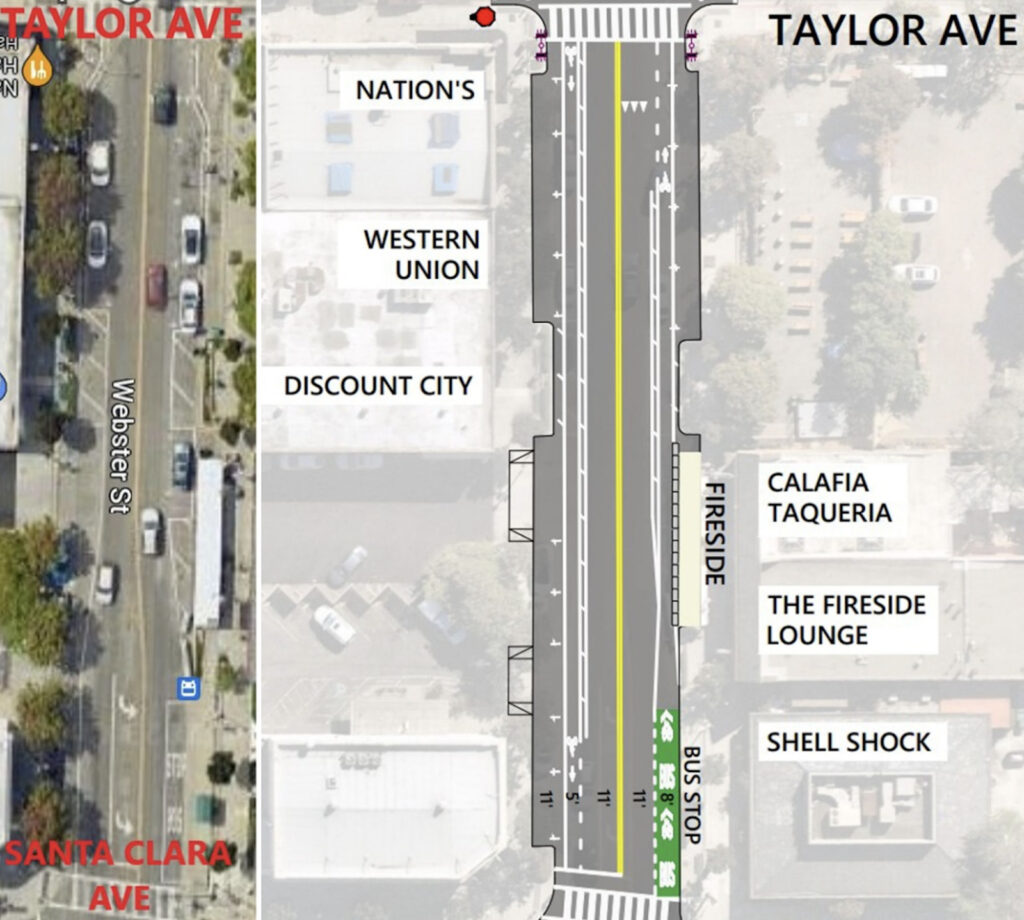
Public comment on the project was mixed. Karen described Park Street as “a mess…in how it looks and functions” and said she no longer shops along the corridor. Several commenters expressed concerns about roadway capacity, including Michael, who noted that spillover traffic from Webster Street is causing backups on nearby Eighth Street. He suggested the implementation of bus-only lanes instead, a sentiment that got approval from other commenters.
Others, such as Bennett, a frequent cyclist, welcomed the changes as a first step towards true multimodal transportation on both streets. He challenged staff to go even further and suggested extending the Webster Street design to connect with the Cross-Alameda Trail at Atlantic Avenue. Vice Chair Tina Yuen and Commissioners Rebecca Kohlstrand and Alysha Nachtigall all agreed, noting the importance of connectivity in encouraging mode shift. Though also in agreement, Commissioner Scott Weitze cautioned against adding to the scope of the existing plan.
The Commissioners voted unanimously to endorse the plan with the following amendments:
- City staff must develop and present to the Commission at its next meeting a plan for public outreach and collection of traffic and travel data.
- Install bicycle turning boxes at intersections.
- Implement curb management policies, including green striping in all bike lanes and the inclusion of dedicated loading zones and ADA parking spaces, to discourage double-parking.
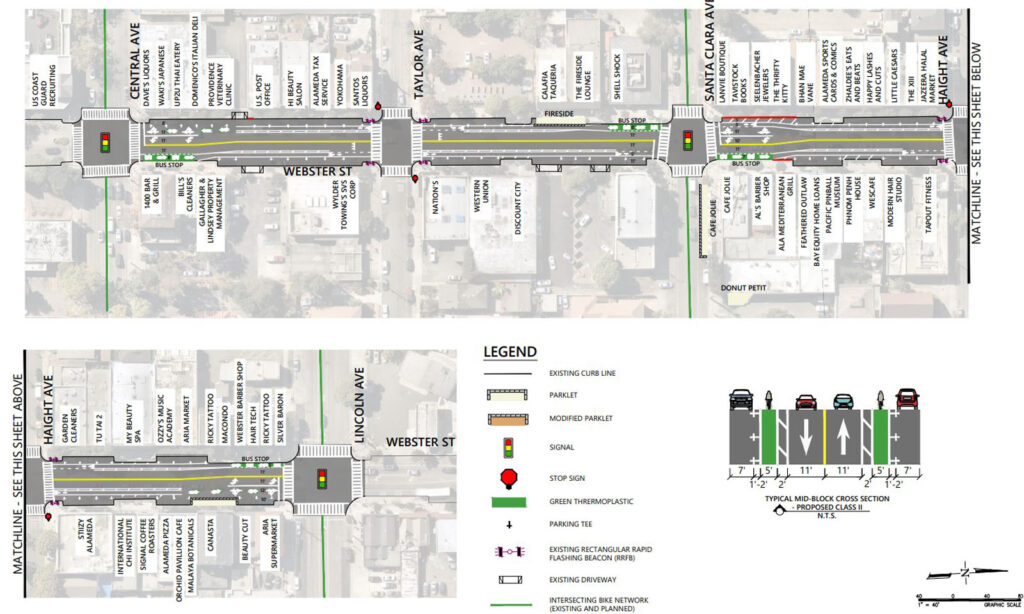
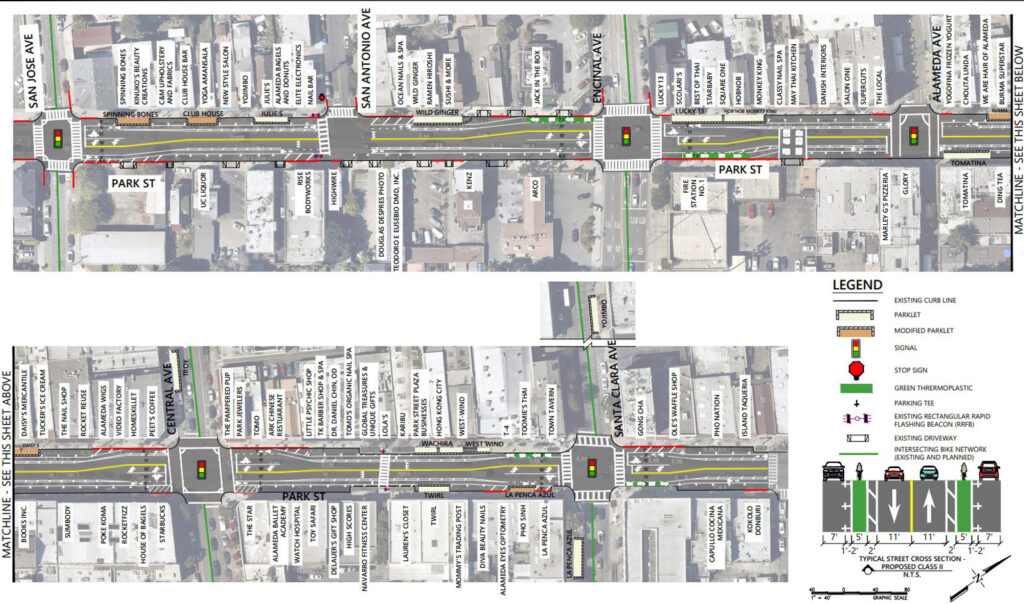
Later in the meeting, the Commission discussed installing electric vehicle (EV) chargers in City-owned parking lots to increase EV charging availability and received an update on the installation of benches at AC Transit bus stops in the City.
Note: Ken Der is a planner employed by the transportation consulting firm Fehr & Peers and contributed to the development of the Park and Webster Street Commercial Corridor Restriping Plan.
Ken Der is a contributing writer for the Alameda Post. Contact him via [email protected]. His writing is collected at AlamedaPost.com/Ken-Der.



